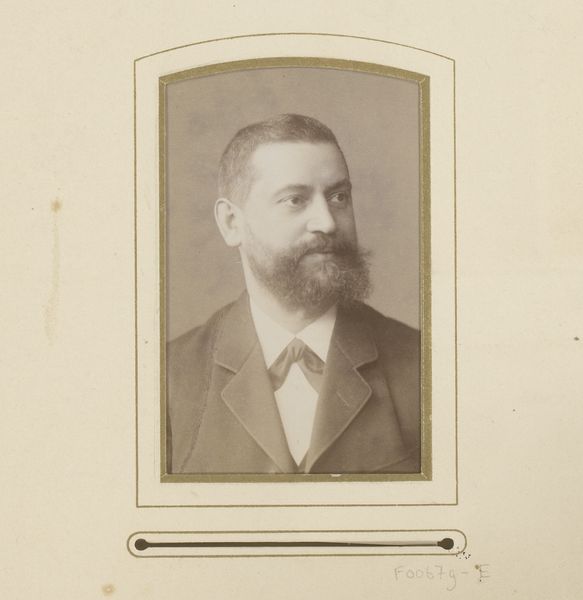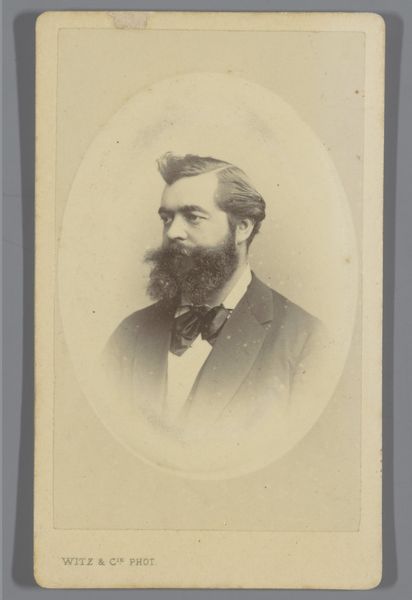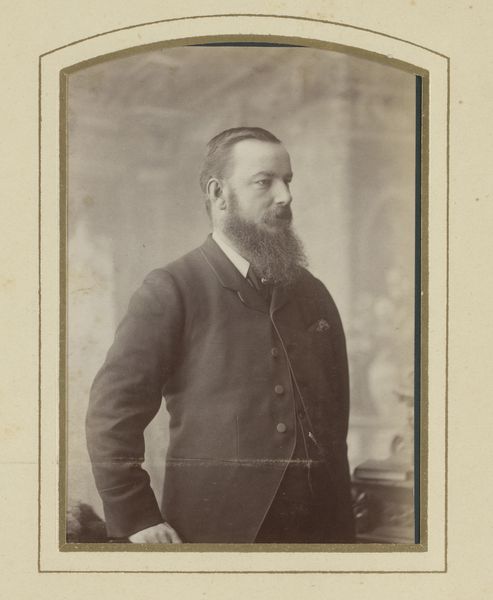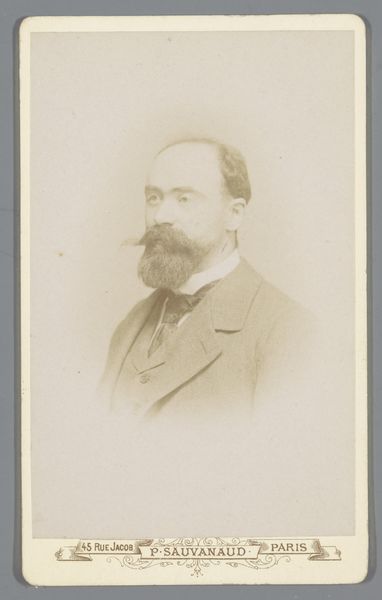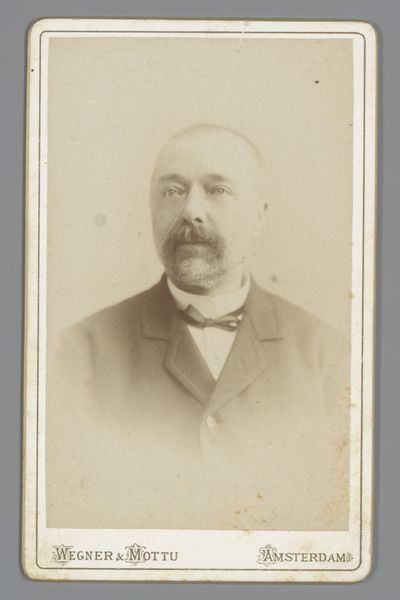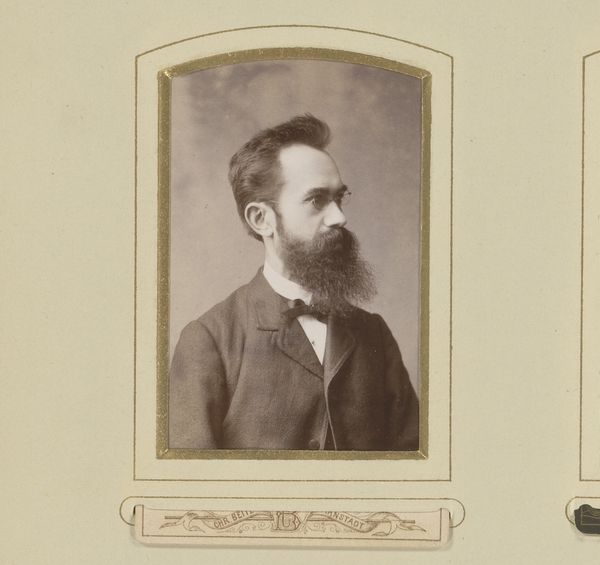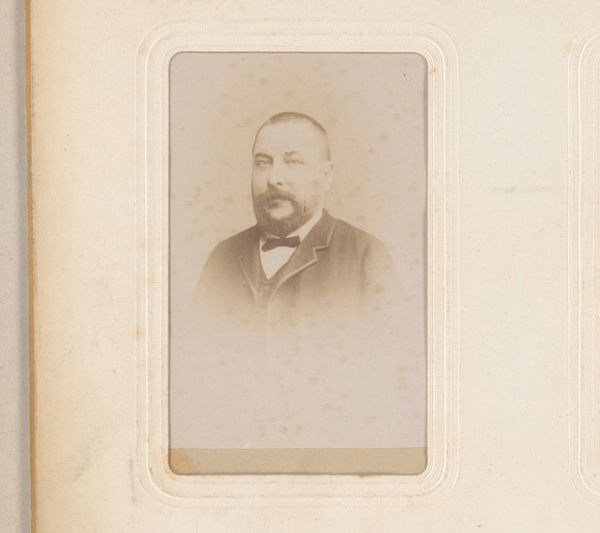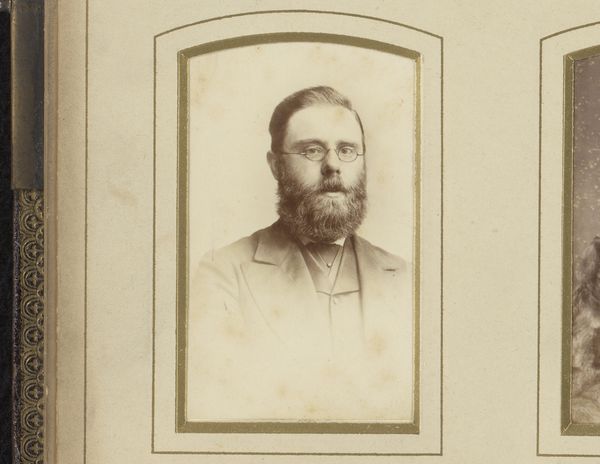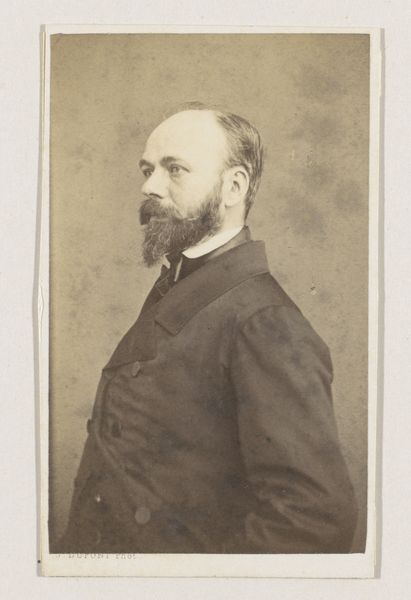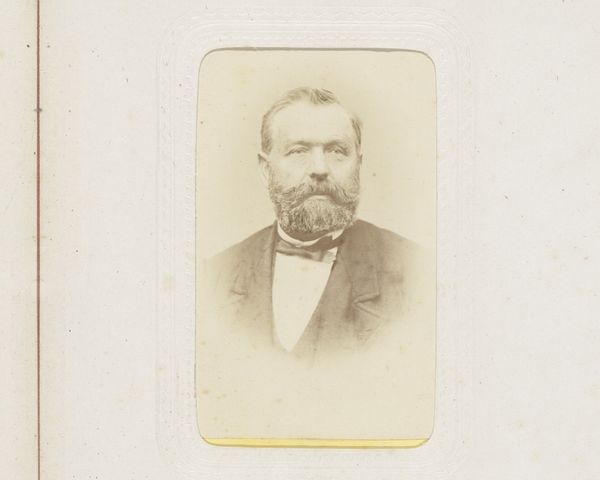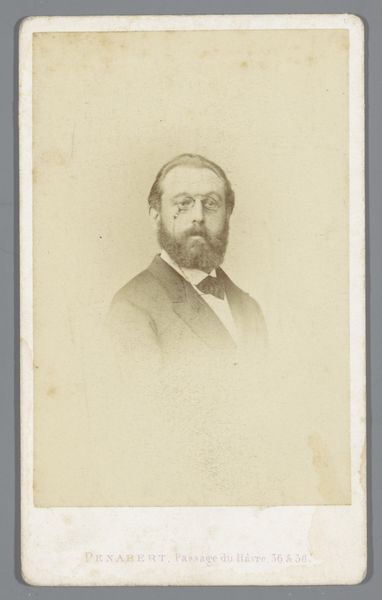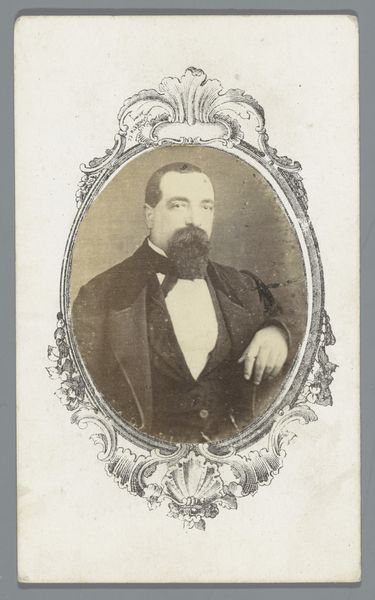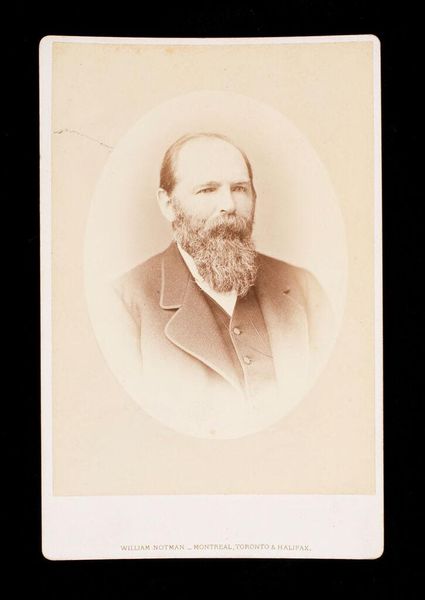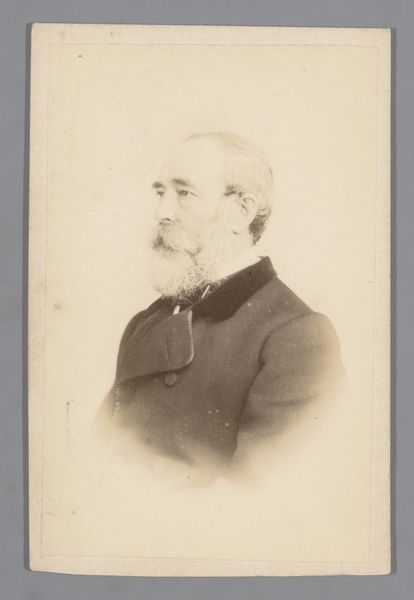
photography, albumen-print
#
portrait
#
paper non-digital material
#
photography
#
genre-painting
#
albumen-print
#
realism
Dimensions: height 103 mm, width 64 mm
Copyright: Rijks Museum: Open Domain
This is a photograph of an unknown man made by Johann Georg Hameter, a Dutch photographer in the late 19th century. It's a relatively small print, likely made using the albumen process, which involves coating paper with egg white and silver nitrate, exposing it to light through a negative. The resulting sepia tones and smooth surface were fashionable at the time. Photography was becoming increasingly accessible, but still required a skilled technician, and a well-equipped studio. Think about the labor involved: preparing the chemicals, coating the paper, precisely timing the exposure, and developing the print. Each step demanded expertise and care. Hameter's studio, located on Apotekersdijk Street, would have been a bustling place, catering to a growing middle class eager to capture their likeness. This image is a reminder that even seemingly simple photographs are the result of complex material processes, and social contexts. They blur the line between art and craft, offering a fascinating glimpse into a bygone era.
Comments
No comments
Be the first to comment and join the conversation on the ultimate creative platform.
